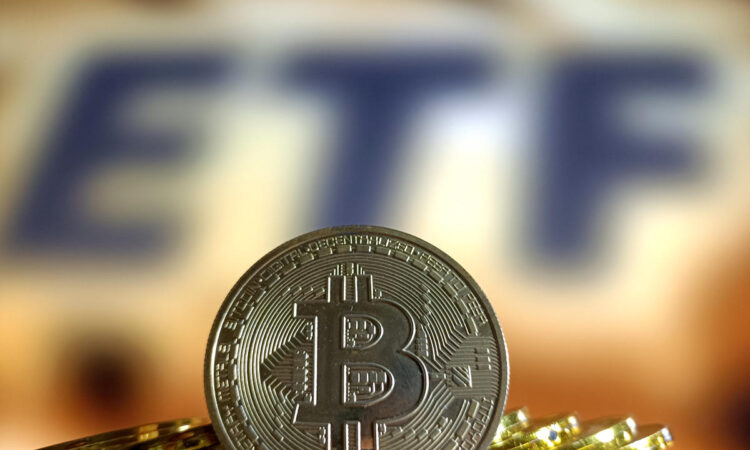
Watch: ‘Bitcoin ETF boom won’t mimic previous retail investor-led rallies’ | The Crypto Mile
Bitcoin has rallied after the US Securities and Exchange Commission (SEC) approved multiple spot bitcoin exchange traded funds (ETFs). However, a leading VC founder has said that retail investor involvement will be more controlled than in previous cycles, as regulatory oversight and enforcement has increased.
Last Wednesday, the SEC approved ETF applications from some of the biggest names on Wall Street, from BlackRock (BLK) to Franklin Templeton (BEN). Investors hope spot bitcoin ETFs will open the gateway for mainstream capital to flood the crypto market.
Retail participation will be different in this cycle
According to Outlier Ventures Founder Jamie Burke, current bitcoin (BTC-USD) investing conditions are different compared to the bull market of 2021, that saw an influx of retail investors driving the digital asset’s price to an all-time high of over $68,000.
Read more: Crypto live prices
After the SEC’s approval of multiple ETFs “retail investing is going to be different this time”, Burke told Yahoo Finance’s The Crypto Mile.
“Although lot of retail investors will gain access to bitcoin through financial products like spot bitcoin ETFs and bring more capital into the market, however, it will enter in a different form,” he added.
Burke said the surge in interest in bitcoin, triggered by the SEC’s approval of multiple ETFs, will not resemble previous hype cycles that witnessed substantial retail participation. “I think that is kind of finished now,” Burke added.
“We are now seeing a lot of enforcement action by regulatory bodies tackling the selling of unregistered securities. Here in the UK, the Financial Conduct Authority (FCA) is now putting various controls on how crypto is promoted to retail.
Read more: Bitcoin rally stokes $50k speculation over spot ETF anticipation
“So, retail is likely to now come through more structured instruments. Hopefully now it will be a little more consistent, constant and less volatile,” Burke said.
A retail investor is an individual who buys and sells financial assets for their personal investment rather than on behalf of an organization or institution. Essentially, they are everyday people participating in the financial markets to grow their wealth.
Read more: US crypto crackdown ‘an opportunity for the UK’
After last Wednesday’s approval, investors in the US now have access to the ETFs, but they remain prohibited for those in the UK due to FCA rules.
In the UK, US ETFs are not available for sale because they don’t issue key investor documents. It means asset managers would need to launch funds specifically for the UK market.
Consequently, the primary option for UK crypto enthusiasts is acquiring bitcoin through crypto trading platforms, such as Coinbase (COIN) or Kraken.
AI-crypto projects in 2024
Burke also highlighted the ongoing development and activity in the field of artificial intelligence-related cryptocurrency projects as a growth area in 2023. He emphasised the continued exploration of themes around AI and data ownership and also called for the growing need for decentralized AI forms and increased transparency in AI governance and decision-making.
Read more: Sovereign agents: Your own personal AI assistant? | The Crypto Mile
Burke emphasised the potential for AI-agent systems to conduct economic activity on behalf of human users on blockchains and outlined the current need for AI systems that enhance user sovereignty, especially with the decline of open web data availability.
Read more: The next generative AI success story could come from the call centre market
Burke suggested ways to encourage users to contribute data for training large language models in a controlled, privacy-enhanced manner. This could potentially allow them to earn passive income from their data stream.
Tokenisation of real world assets in 2024
Burke discussed the tokenisation of real world assets as another major development that could be a focus area in 2024. This process enables the representation of traditional assets such as real estate and bank issued debt on blockchains, enhancing liquidity and efficiency.
Tokenisation can also be extended beyond traditional finance markets to encompass various sectors, including supply chains and science research and development. The process could allow for the decentralisation of scientific research and the creation of autonomous credit markets.
Watch: Sovereign Agents – your own personal AI assistant? | The Crypto Mile
Download the Yahoo Finance app, available for Apple and Android.






